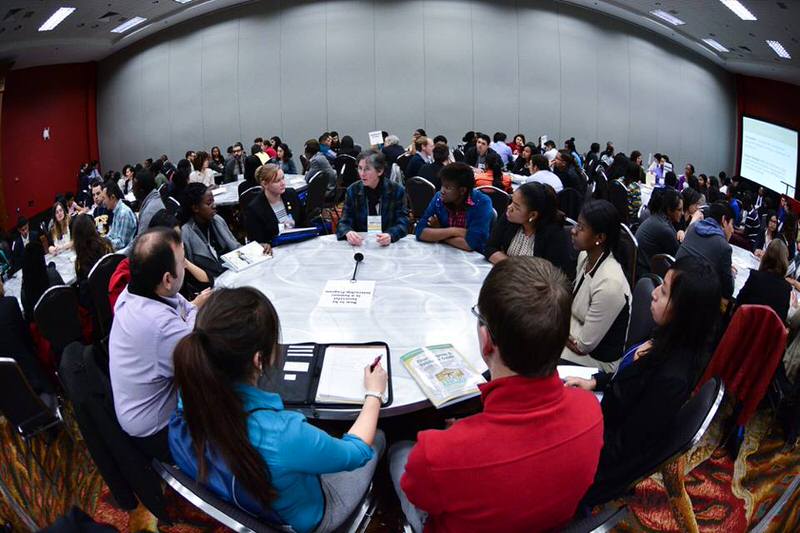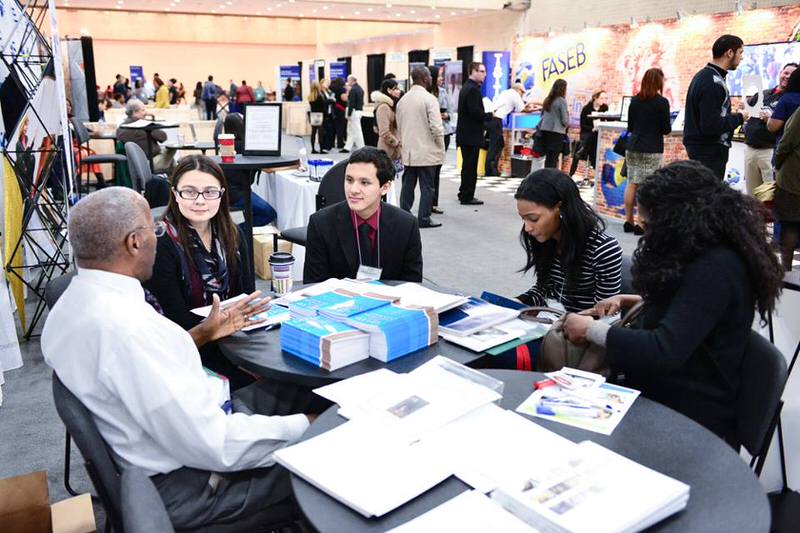Annual Biomedical Research Conference for Minority Students (ABRCMS) 2014 in San Antonio

ABRCMS (@ABRCMS) is one of the largest national minority conferences for primarily undergraduate students majoring and doing research in the STEM (Science, Technology, Engineering & Math) fields. While the conference attracts mostly undergraduate students, graduate students, postdoctoral fellows, and faculty attend as well.
This is their 14th year in existence, and they have invited many distinguished speakers such as Drs. Mae Jemison, Francis Collins, and Neil deGrasse Tyson, just to name a few. The conference takes place over four days and consists of: poster and oral presentations; an exhibit hall with representatives from universities, scientific societies, industry, and government agencies such as the NIH; and informational sessions.
This year Derrrick Pitts (@coolastronomer) and Sonia Shah (@soniashah) spoke at the conference. Derrick Pitts, ScD, is the Chief Astronomer and Planetarium Director at the Franklin Institute in Philadelphia, PA. He talked about the importance of scientists communicating science to the general public so that it’s both understandable and interesting.
Sonia Shah is a science journalist, prize-winning author whose most recent book is “The Fever: How Malaria Has Ruled Humankind for 500,000 Years.” She discussed the recent Ebola epidemic, the history of malaria, and the sociopolitical reasons why malaria is still around.
As a postdoctoral fellow, I’m always interested in gaining job and career advice.

The initial step in finding a job is to break down a job ad into a competencies map to learn the emphasis of the job and to write a statement in your resume using similar language. All resumes should be targeted with a summary of qualifications at the top and no more than two pages in length. Build a network based on people at your current job(s), previous job, social contacts, and alumni. LinkedIn is a good resource to research and follow discussion groups of the companies to which you are applying. If you get an interview, take the time to research the company by reading press releases, know the product, and global office locations. Get to the interview early and always dress professional. During the interview, listen 70 percent and talk 30 percent of the time.
Although this conference focused on undergraduates, it’s a good conference for graduate students to present their research, especially if they have never presented at a national meeting before. It’s an open and welcoming networking atmosphere. I used this conference as an opportunity to be a first-time judge at a national conference and to network with both professionals and students.
Since I attended this conference my junior and senior year of college, I sought out undergraduates from my alma mater as both a networking and mentoring opportunity. A group of alumnae and I answered their questions about graduate school, our personal experiences, and gave advice on what they should expect to gain from graduate school.
It was rejuvenating to talk to students about their research and career aspirations. The experiences at this conference reminded me of why I love science.
